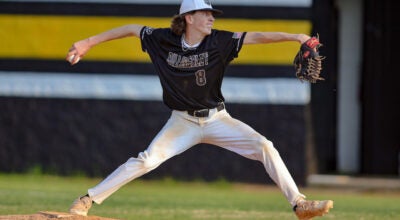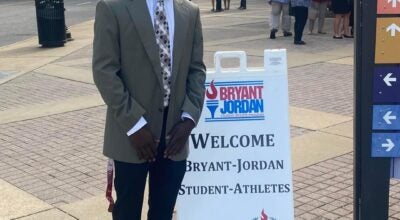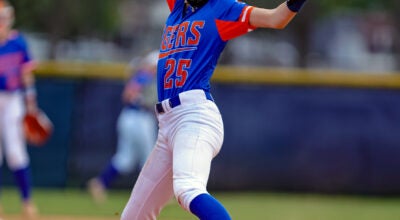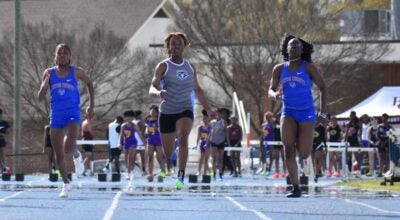Future hunters enjoy time spent outdoors
Published 7:38 pm Monday, January 26, 2009
After a youth dove hunt had come to an end on the final day of the season, Chris Litton marveled at the reaction from the participants.
“Sandpaper couldn’t have wiped the smiles off those kids’ faces,” Litton said.
For the hunt at Alligator Alley in Baldwin County, it really didn’t matter that normal migration patterns had left only a scattering of birds for the season finale.
It was all about being out the field, according to Litton, who helped organize the event with the help of Alabama Department of Conservation and Natural Resources’ James “Jinks” Altiere and Alligator Alley’s Wesley Moore.
“They had so much fun,” said Litton, co-manager of the Orange Beach Recreation Center. “The best moment of it for me was after the hunt was over and kids had come back to the picnic area to get ready to go, they were talking among themselves about the birds that flew over that they got a shot at, and several of the kids got birds. They were talking about that shot or that bird as if they had scored the winning touchdown in the Super Bowl. They were so excited.
“I looked at Jinks and said, ‘That’s why we do this. This is why we’re out here volunteering our time.'”
Moore overheard a similar conversation after the hunt.
“One little boy was talking about how he got to shoot twice,” Moore said. “He was so happy he got to shoot the gun. It wasn’t about how many birds he shot. That’s why I volunteer my place.”
Altiere said the youth dove hunt program is one tool used for the training and recruitment of young hunters.
“And it has to be done right,” Altiere said. “When I say being done right, first is hunter ethics – the ethical way of harvesting surplus game and the management reasons behind that. Also you’ve got the laws and regulations. It’s in an educational situation where we try to instill good stewardship and sportsmanship at a young age.
“That’s what I think is so important with the youth dove hunts is that we have [ADCNR] people involved, as well as hunter education instructors. Plus, you have the youths’ parents. Obviously, as staff and hunter ed instructors, we see the future in the youth hunts. And for parents, they’re not only getting an education, but they’re mentoring and getting to spend time with their kids.”
Altiere and Litton warmed up the youngsters before the hunt with a few clay targets – another critical time in the hunting experience.
“There is some apprehension the first time, even at the skeet range,” Altiere said. “That has to be done right, too. If it’s their first experience of shooting a shotgun, you’ve got to be careful to ensure a positive experience. A lot of times, I hold the gun and let them pull the trigger so I can control the recoil. You’ve got to use good judgment with letting them enjoy it but keeping them from having a bad experience shooting a gun.”
Litton, a NRA-certified rifle instructor and range safety officer, said it is absolutely important that kids learn proper gun handling from safety-conscious instructors.
“There are so many video games out there that teach – in my opinion – irresponsible gun handling,” Litton said. “What we want is for these kids to learn the right way to handle firearms in a controlled environment.
“We just want to make sure the kids are safe. If nothing else, when they come out of any of our camps, courses or hunts, we want those kids to be safety minded. The great thing about the dove hunt is the parents got to experience the gun safety together so everybody is on the same page about being safe.”
Altiere said the reaction to the actual hunt is going to vary with age.
“The younger ones just enjoy the shooting,” he said. “It’s a new experience. The older, mid-teens enjoy the hunting aspect. The one I was with was full of questions. They’ve got a little experience, but they have a lot of questions about the right way of doing things.”
For the vast majority involved, it wasn’t about filling their game bags with birds.
“Some of the kids didn’t hit anything, but they did something they hadn’t done before,” Altiere said. “You want to leave a positive experience even if they don’t do it again.”
Altiere considers the youth dove hunts a step beyond hunter education class.
“You can only do so much in a hunter education class or field day,” he said. “You’ve got to have the right people doing the mentoring. The youth dove hunts and youth squirrel hunts are really important. Every game species you hunt is different. You’re teaching them skills and the wildlife management of each species. That way they can apply what they’ve learned in hunter education in the field.
“Maybe by working with the youth, sometimes they will change some habits of their parents.”
Litton said the main question he fielded after the hunt was when they were going to do it again.
“We had 35 kids with their families out there with no TVs, no computers, no couches,” Litton said. “The kids were out there in the field with their parents, learning gun safety and hunting ethics. They had a great picnic. They got to spend quality time together on a good dove shoot. The overall response I got from parents and kids was just absolutely phenomenal.
“Probably one the biggest surprises was the number of people who have come up to me, unsolicited, and offered a field for future dove hunts and hunting camps for other hunts. In fact, before we left the dove hunt, I had another group of men approach me and not only offer their hunting camps but offered to be mentors for kids who don’t have parents who can take advantage of these opportunities. That’s outstanding to me.”






